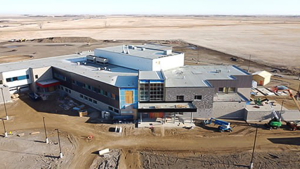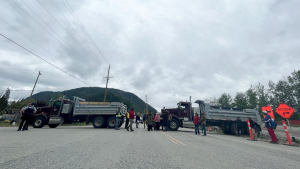Prompt payment legislation remains elusive in B.C.
Construction advocates have written the province letters, supported a private members bill, urged the BC Law Institute to address prompt payment during its lien reform efforts, had ongoing meetings with government officials, met with the premier, produced podcasts and even broadcast radio ads on the issue.
Despite the industry’s urging, little visible progress has been made and government officials say they won’t even start industry engagement until mid to late next year.
“We are aware of requests from within the construction and skilled trades community for prompt payment legislation in B.C. and are meeting with other jurisdictions through the Prompt Payment Working Group to learn best practices and monitor the impacts of prompt payment legislation in other jurisdictions,” said a representative for the Office of the Attorney General. “There is no single approach to prompt payment legislation.”
They added that “broader consultation” is needed to determine how legislation would work best in B.C. “To help inform these engagements, industry associations are encouraged to consult with their members on how prompt payment legislation in B.C. could be structured and submit their detailed proposals to government.”
But for groups like the Vancouver Regional Construction Association (VRCA) that’s not good enough. Donna Grant, VRCA president, said they were told to expect legislation to be tabled this fall. But now they are being told it’s not a priority and might be revisited next year. The news came after representatives from the attorney general’s office participated in a series of town halls with the industry, assuring leaders the issue of late payment was being worked on.
“We are not asking the whole industry to shift to Bitcoin, we are just asking for our members to be paid in a timely fashion for work they have done,” she said. “Projects are being financed on the backs of the smallest companies at the very end of the chain.”
Grant said the Builder’s Lien Act isn’t enough and most don’t have the resources to take their grievances to court.
“We don’t even need to pioneer this,” said Grant. “It has been successful in Ontario and Saskatchewan. And it is starting in Alberta. We don’t have to experiment. We can see that it’s been done well already. It’s creating better behaviour.”
Grant added she is baffled why politicians won’t take an easy win which impacts roughly 250,000 voters in the province who work in the construction sector. Grant reminded officials that during the pandemic construction was deemed an essential service, and despite the risks, workers showed up to jobsites and kept the economy going.
“With a potential recession coming we need to make sure our members can at least get paid for the work they are doing,” she said.
Late payment impacts companies like Southwest Contracting which has worked on dams, hospitals, roads and many other critical projects in the province.
“It’s never ending and it seems to be getting worse,” said the company’s president Will Pauga.
In the last few years, Pauga has seen payment timelines go from 30 days to more than 60. He has even seen some in the industry wait 90 days for payment.
“Obviously other provinces have been ahead of the curve and we have been pushing for action in B.C.,” he said. “This is one of the biggest sectors in the economy and its extremely disappointing. In this environment getting paid is critical. If you go to the store and you want something, you have to pay for it.”
Pauga said the province has done an embarrassing about-face on the issue.
“I think the province is missing an opportunity to fix something that’s broken,” he said. “We have been waiting years now and other provinces have followed quickly. To say that you want to start these working groups is just lip service.”
Follow the author on Twitter @RussellReports.











Recent Comments
comments for this post are closed